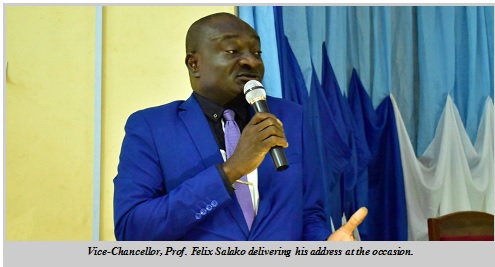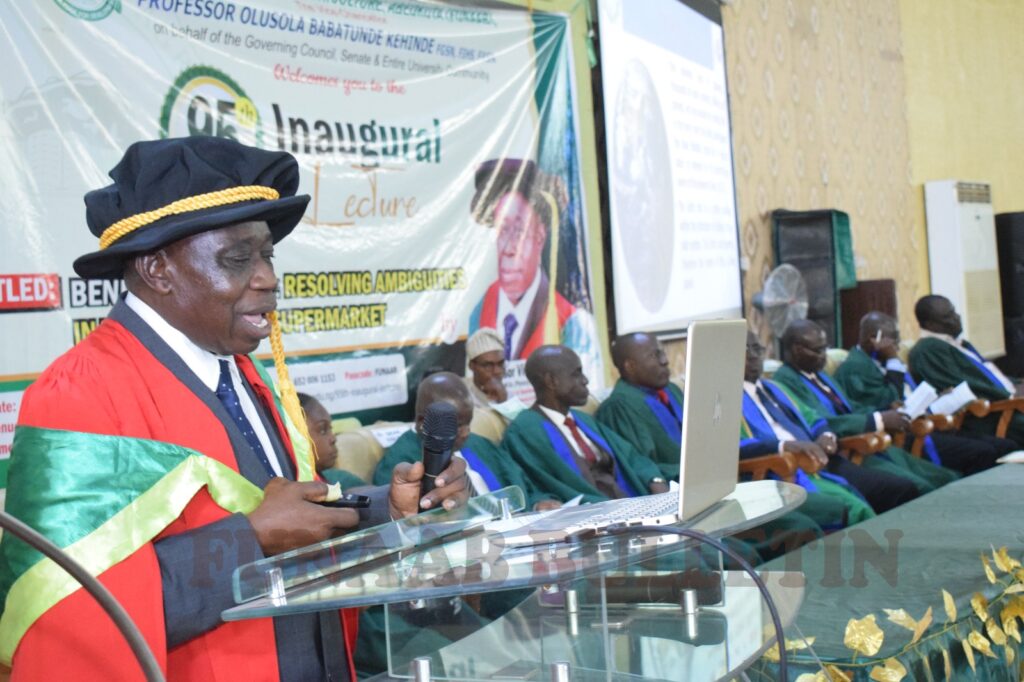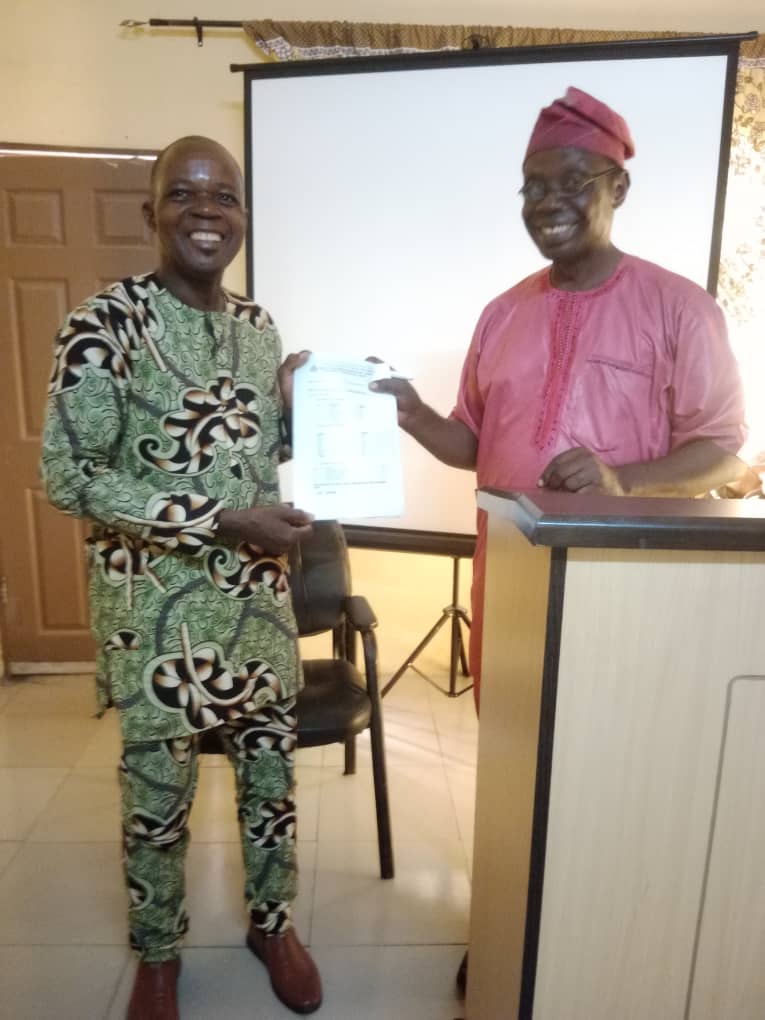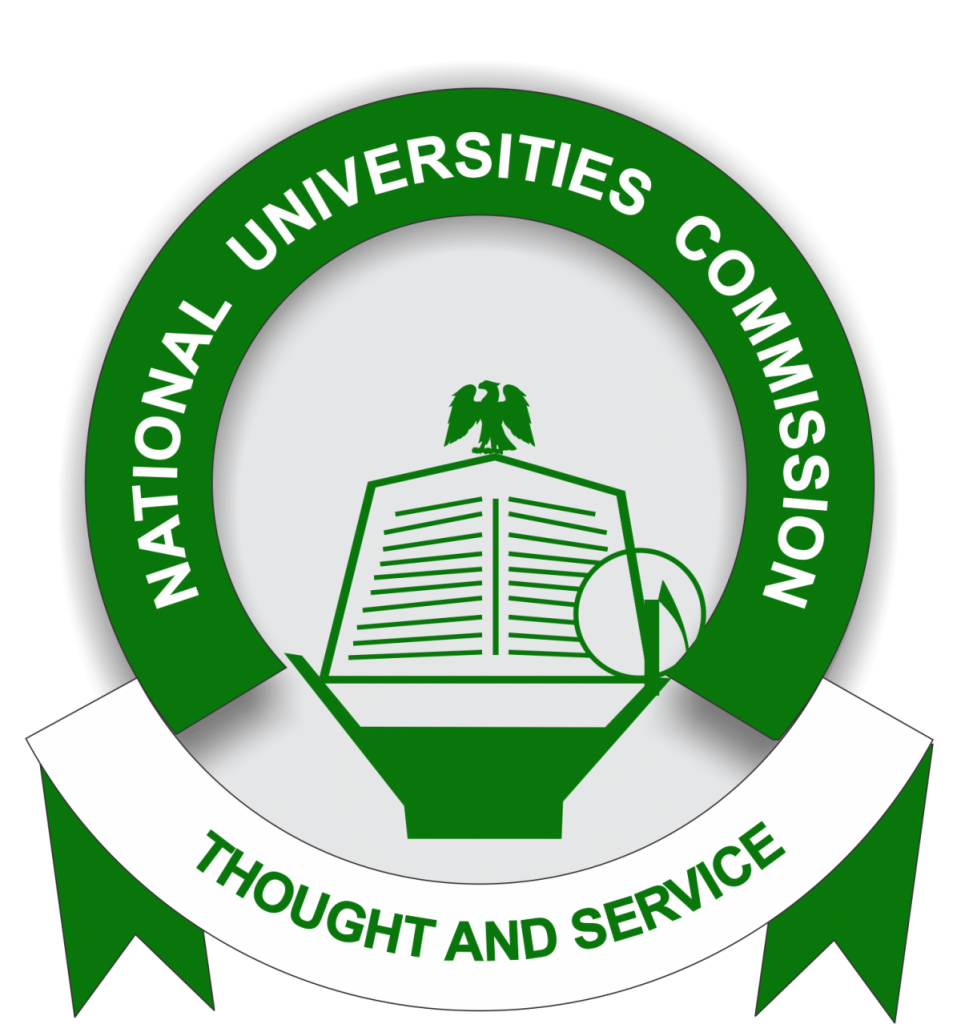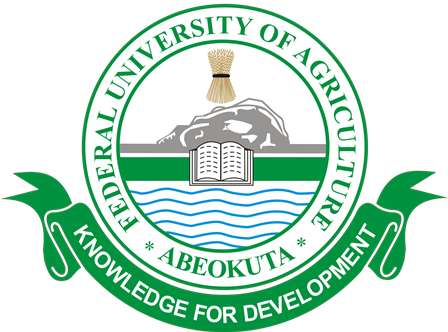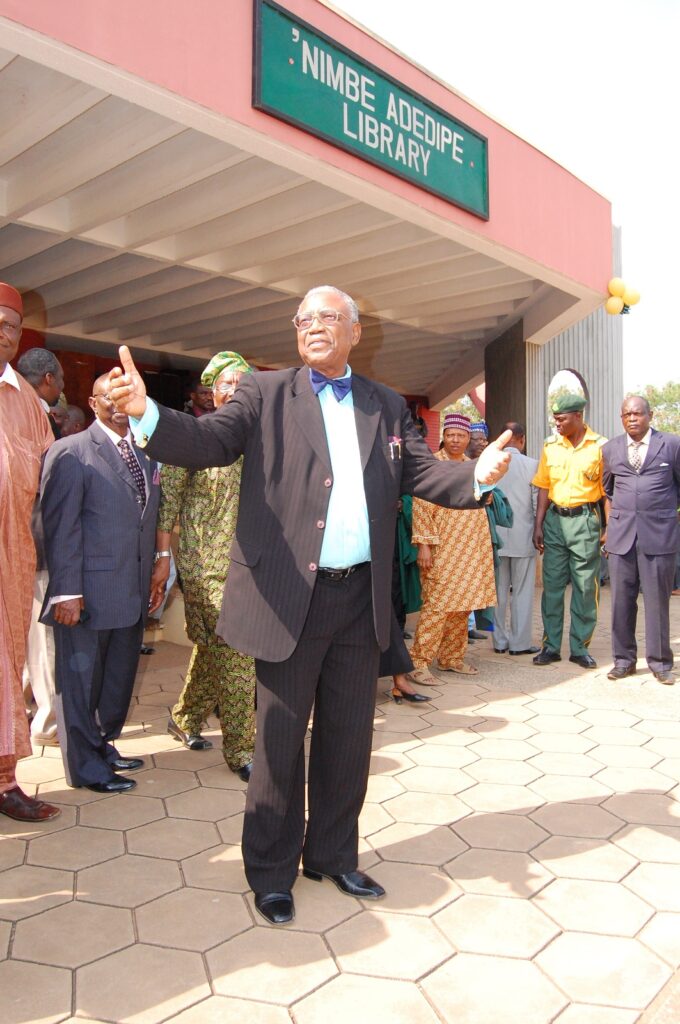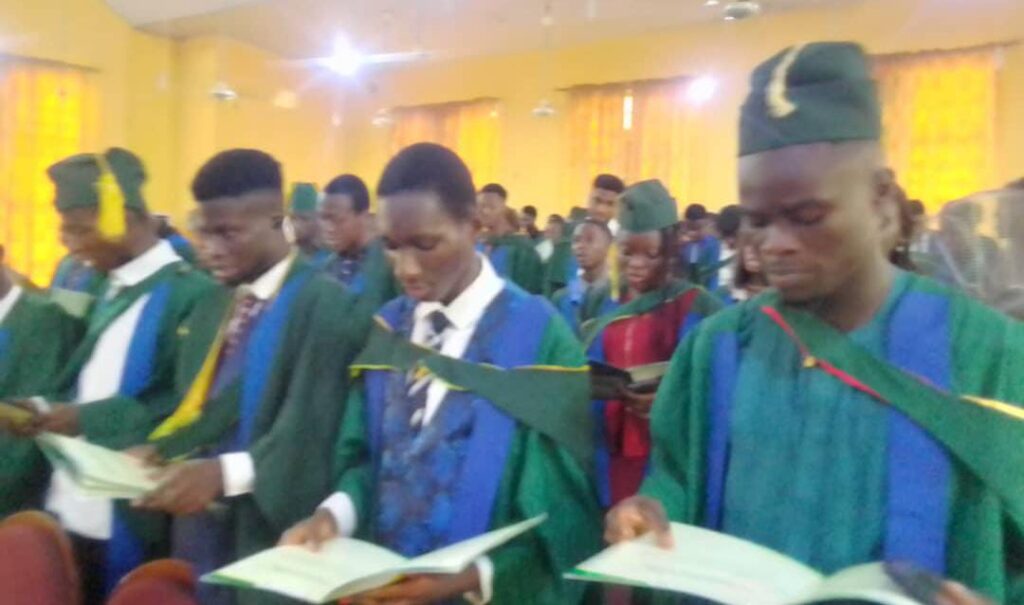The Vice-Chancellor, Prof. Felix Salako has charged staff to be highly dedicated in the course of discharging their duties in the University. Speaking at the training workshop on “Processing of Examination Results”, organised by the Senate Coordinating Committee on Examination Results (SECOCER) for Deans, Heads of Departments, Examination Officers and College Committees on Examination Results (COCERS), the Vice-Chancellor described the FUNAAB University as an established institution with rules and regulations, and urged heads of departments not to neglect their responsibilities as chief examiners, to ensure that the integrity of examinations conducted were guaranteed.
The Vice-Chancellor cautioned against the arbitrary use of social media. According to him “social media is being used for blackmailing; we need to be conscious because we have blackmailers and they would bring people down before you get out of it”. He noted that a clinical psychologist had been appointed by the University to look beyond student affairs but to examine depression and guard against suicide among students.
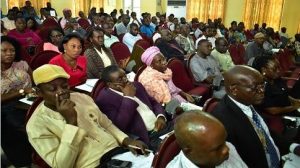
“We have hired a clinical psychologist, to go beyond the issue of student affairs and counselling. We need to look at depression; why are they attempting suicide? I think the problem is that there is more of artificial intelligence than natural intelligence and they need to be guided”, he stated. The Vice-Chancellor berated students’ heavy reliance on the Internet, stating that an advisory system would be put in place to protect students at the departmental level, to ensure that they do not encounter problems in their academics.
The Chairman of SECOCER, Prof. Christian Ikeobi of the Department of Animal Breeding and Genetics, College of Animal Science and Livestock Production (COLANIM), said the training workshop was conceived by the Senate of the University towards ensuring adequate training of examination officers on results preparations.
He appreciated the Vice-Chancellor for approving that the training workshop was held before the commencement of result compilations. Prof. Ikeobi further stated that examination officers should see themselves as stakeholders within the university system and ensure that result presentation was not compromised in any way. According to him, “we all are stakeholders in this system and the results of our students and their validity go a long way towards promoting the image and international reckoning of our University”.
In paper presentation on “Understanding the Results Processing Software in FUNAAB”, Director, Information and Communication Technology Resources Centre (ICTREC), Prof. Adesina Agboola, and Mr. Adeyemi Yusuf, Senior System Programmer and Lead Developer of the System, informed examination officers on how the results processing software can be used to upload students’ results. Prof. Agboola noted that once results had been uploaded, lecturers would not have access to the results, except with the approval of the Deputy Vice-Chancellor (Academic), after which the uploaded results would be transferred to a mark sheet, which would be downloaded.
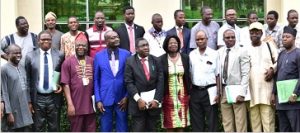
He added that once the mark sheet was vetted, it is taken to both the College Board and Senate for approval. He stated that the results would later be sent to ICTREC for another level of cross-checking, to ensure that there was no disparity, so that students can view their results. Speaking further on the results processing software, Mr. Yusuf disclosed that users should know where the University Management system is located and how to access it. He noted that users should be authenticated with their staff numbers as usernames, to access the dashboard.
He emphasised that users should ensure that their passwords are not shared with anyone and that Heads of Departments should create an account that would allow them to view departmental courses in a particular semester by assigning a coordinator to it. He clarified that students can apply for rectification on the University portal after which the Head of the Department receives the application instantly, then approves, forwards to teaching departments on the administrative portal and sends to the course lecturer, who would then respond.
Presenting a paper on the “Principles and Practice of Results Processing in FUNAAB”, Prof. Christian Ikeobi, Chairman of SECOCER, spoke on the evolution of results processing in FUNAAB, which he said started from “manual to the Dr. Akinlade of the Physics Department’s software, to Dr. (Friday) Ibharalu’s software, and now the ICTREC package”. He added that SCER was changed into SECOCER in 2010 with the establishment of COCERS in various colleges to own results. He said results were vetted to ensure correctness and compliance with rules and regulations. He encouraged examination officers to be familiar with the degree programmes that are being vetted and also know the minimum number of units required for a student to graduate in a particular degree programme. He advised them to be computer-literate, familiarise themselves with the ethos, culture, and trend that had been in place in FUNAAB over the years. Meanwhile, papers were also presented by Prof. Olusegun Idowu of the Department of Animal Nutrition, COLANIM and Prof. Olawale Dairo of the Department of Agricultural Engineering, College of Engineering, (COLENG), who are members of SECOCER.

